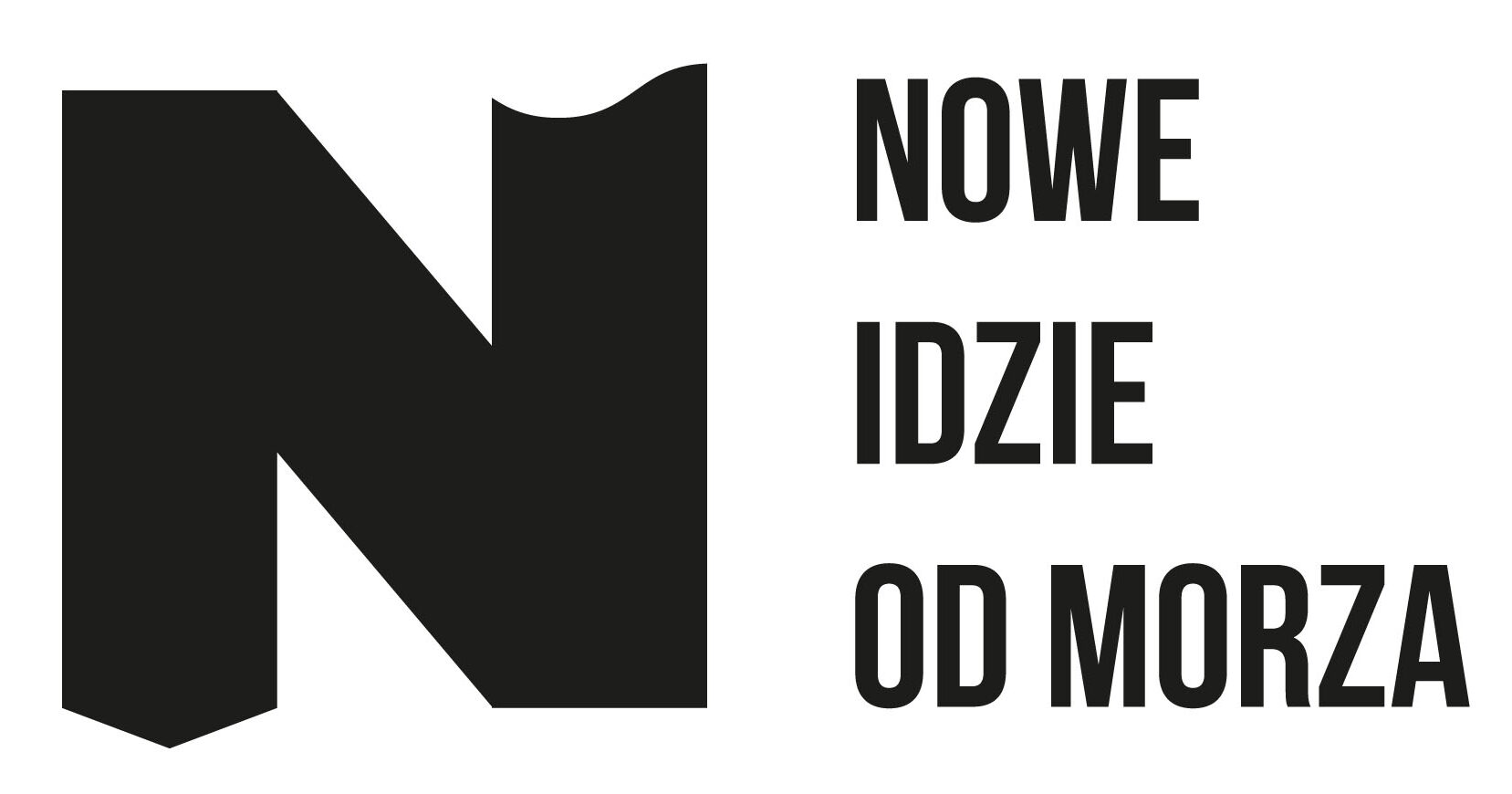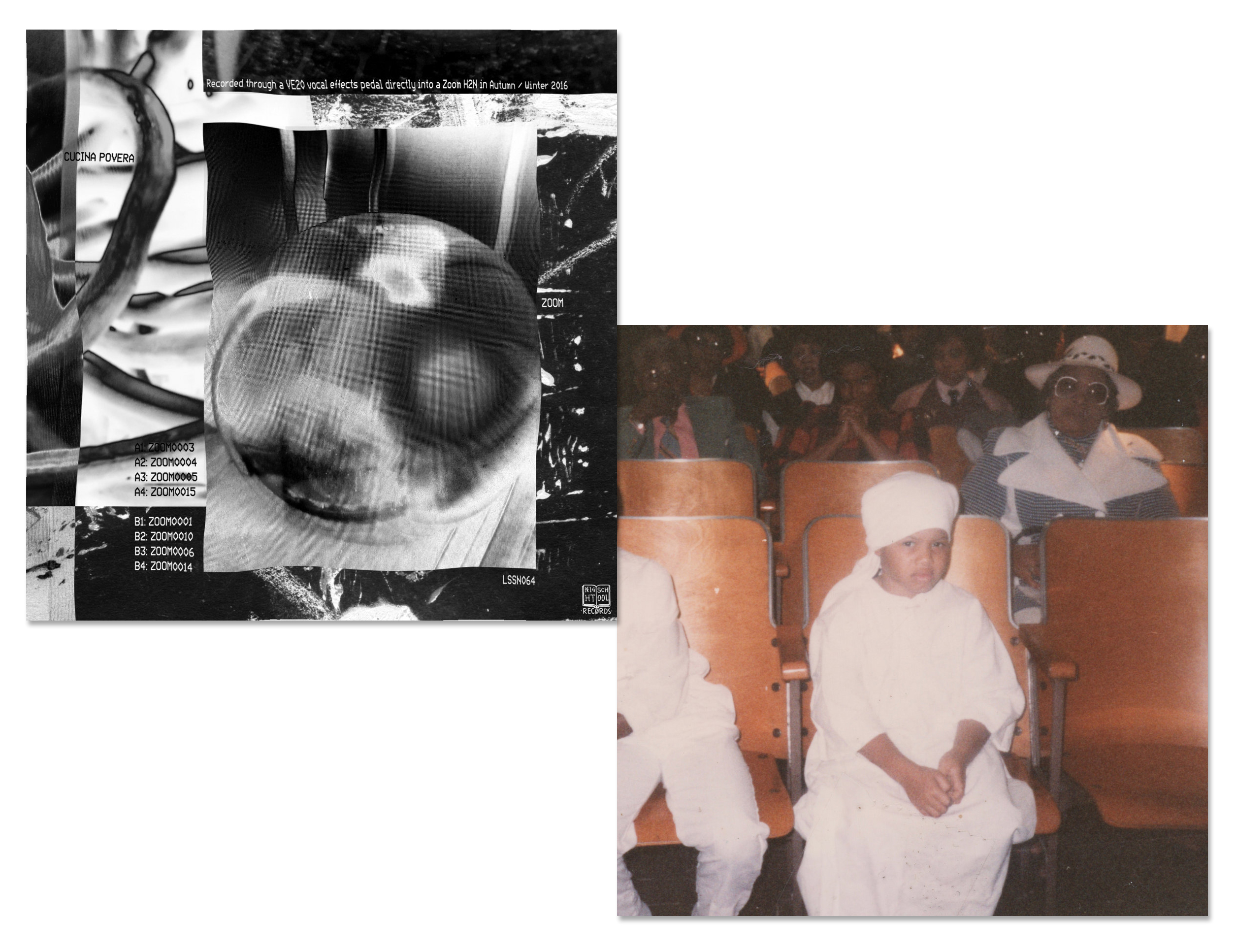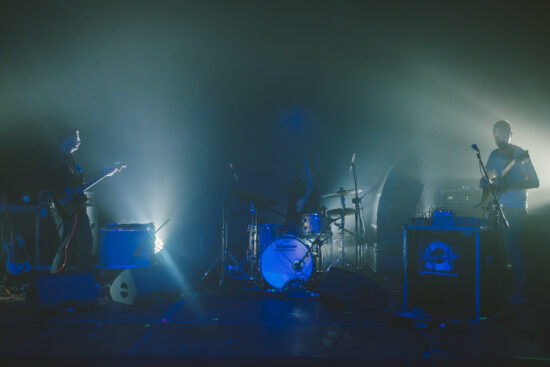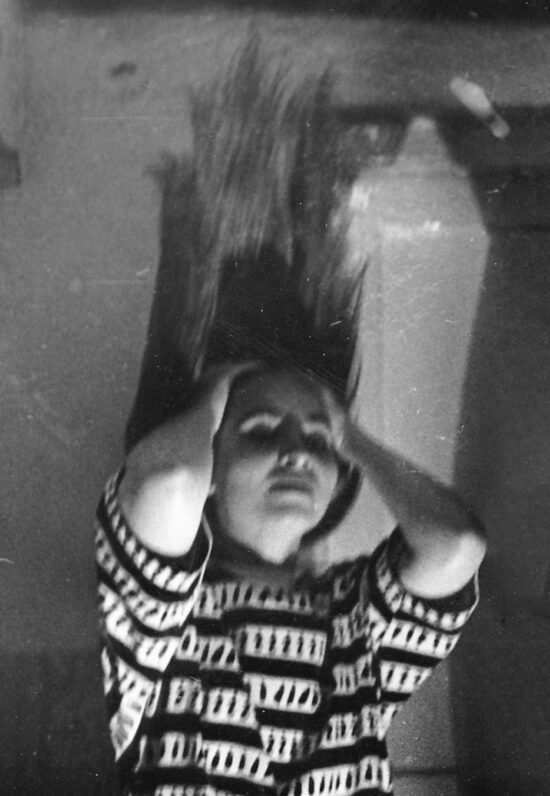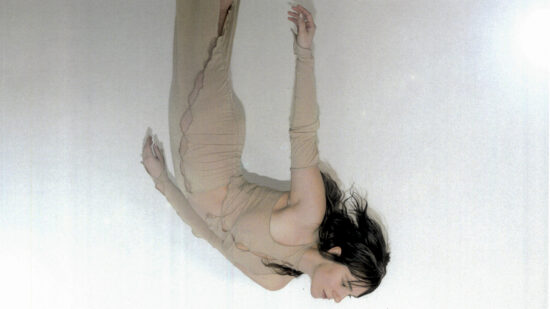Clarinettist Angel Bat Dawid recorded a moving work of anger and sorrow, very lyrical, informed by spiritual jazz and gospel. On her mobile phone. Cucina Povera used a simple Zoom recorder to loop just her voice, building minimalist, poignant songs.
Translation: Aleksandra Szkudłapska
I have childhood memories of my Sony dual cassette player/recorder, which I used to record my voice and made-up broadcasts. I registered whatever came to my mind, but also fragments of radio shows, songs, and, ultimately, mixtapes from one cassette to the other. Somewhere along the way, the tape recorder gave way to the smartphone: a handy and intuitive tool which you can now use to record basically everything. Agnes Bat Dawid recorded her debut on a special app on her phone, while Cucina Povera relied on the popular Zoom recorder to make her second album. Although both records are musically very distinct, what they have in common is the recording method and the energy they give rise to.
Agnes Bat Dawid has been making strides in music for quite a while now; some say she has enough ideas to fill a few albums. At one point she attracted the attention of Scottie McNiece, founder of Chicago-based International Anthem, an invigorating label that in recent years brought the world such artists as Makaya McCraven, Jaimie Branch, Ben Lamar Gay or Ahleuchatistas. McNiece singles out creative musicians who have an inventive approach to the very process of making music: McCraven amassed several dozen hours of music for In the Moment, which he then cut up and mixed into a witty and vibrating record; Branch recorded some of her material during spontaneous jam sessions, and some in the studio on multi-track, which together yielded a coherent work whose free-jazz frivolity, energy and great flow between the entire band are very palpable. Angel Bat Dawid’s The Oracle seems to echo this trend, although the artist recorded it entirely on her own, on an app that allows you to record up to twelve tracks. Sometimes in her home studio, sometimes just before shows or on the road (“London” was created in an apartment rented in London, where she found a piano, while “Cape Town” is the result of a spontaneous session with drummer Asher Simiso Gamedze). Later, building on her experience in the Angel/DeLundon duo, she mixed it all on her own.
She is an artist active on many fields: from the purely musical sphere to involvement in social matters, widely publicized by The Guardian and Chicago Reader. Consequently, the fact her music is made as if by the way, often (though not always) in-between other activities, is meaningful – it’s like a note from the road, a sound recording of emotions that make the whole material more dense. Angel Bat Dawid is open about her inspirations with spiritual jazz, nor does she shy away from her social involvement. “Destination” features a poem by Yusef Lateef, American composer and multi-instrumentalist, while “What shall I tell my children who are black” is a powerful pieces with looped and multiplied tracks from Margaret Taylor-Burroughs’ poem (What shall I tell my children who are black / Of what it means to be a captive in this dark skin?). Dawid’s music is informed by jazz, gospel, even verging on quasi-hip-hop in “Black Family”, where the artist samples a repetitive drum beat. In spite of the various recording methods – sometimes a track from a live recording, at other times as many as seven tracks with added effects, the album forms a coherent whole. In “Black Family”, the voices add up and there appears a distorted, reverberating and electrified saxophone; “Impepho”, in turn, is a free-jazz trip with doubled clarinets and the wah-wah effect. There is energy and sincerity in this music, a certain rawness, but also the spiritual dimension – thanks to the artist’s spontaneity and underlining important subjects in the lyrics. Apart from offering a witty commentary on the situation of African-Americans, Dawid reaches to the history of spiritual jazz (which she learned to love in her family home), and the tradition of music’s social impact as a tool of resistance. Either in a lyrical and moving form, like in “We Are Starzz” or “What shall I say…”, or in its completely untamed and shamanic incarnation, like in “Cape Town”. To me, Dawid is at her most powerful when she shouts, like in fervent prayer, in the final, title piece. She is poetic, honest and authentic, exuberant and direct at the same time. A brilliant album.
Cucina Povera is not a debutante: her Italian moniker originally refers to the frugal cooking methods of South Italian peasants after World War II, and her first album, Hilja, was released last year, garnering instant attention. It would seem that publishing new material after such a brief interval is not the best of ideas, but Zoom is even better than its predecessor. The artist, Maria Rossi, originally from Finland, but currently living in Glasgow, has managed to limit her sound even more. The eight pieces whose titles reflect the catalogue names given to them by the Zoom H2N recorder are a tour de force of her vocal skills and various captivating methods of using her voice based on the VE20 effect. Povera plays in acoustically spacious rooms, in various places, also while moving – this is felt thanks to the good sound quality of the material, the reverberating echoes and acoustic properties that work in the music’s favour. The artist samples layers of her voice, loops them, and overlaps them with others. Sometimes in a very melodious and meditative form (“0003”), sometimes generating quasi-beats (“0004”), embedding a mini-choir composed of her layered vocals in between. She escapes into silence (“0005”), and music appears where no-one would really expect it to. She ventures into ambient-pop songs (“0001”), which are not accompanied by any sounds apart from the resonating voice, or else she introduces single notes on keyboards. The two final pieces sound almost religious, evoking a solitary psalm – the choir/organ “0014” offers a powerful conclusion to the album.
Povera takes a simple recording tool and spontaneously registers her ideas. The titles reveal that she hasn’t used everything she’s recorded – she made a selection to create a coherent narrative. Zoom sounds like the result of consistent improvisation, but it’s also a demonstration of self-sufficiency, reaching towards the essence of classical minimalism based on repeats and repetitions. And yet Rossi creates music that is pure, uncalculated, honest, and beautiful. The timbre of her voice is enchanting against the background of silence, and the effect of multiplying it or all the microsounds that emerge around it, both in the more rhythmical form and as musical mist, add colour to the silence and vocals. This is a toned-down, but colourful musical tissue, a sound note of sorts. Evoking a sacral and meditative atmosphere, it oozes a state of relaxation. This is a masterful use of tools (voice and its echo, but also the effect employed to manipulate it) to reduce and administer the sounds. I listen to Zoom and find myself thinking this is the voice of a saint resounding in a temple. Yet it is most enchanting in its interplay with silence, the physical potential of the human body, and the intriguing inventiveness in arranging improvisation into song-like structures. This is authenticity, spontaneity, and spirituality in one. If the song-like and subtle Hilja stole your hearts with simplicity and beauty, Zoom goes even further towards reduction, at the same time offering music that pierces you to the bone: subtle, evocative, without a touch of needless ornamentation.
Angel Bat Dawid, The Oracle, International Anthem
LISTEN 🎶 Tidal 🎶 Spotify 🎶 Deezer 🎶 Apple Music.
Cucina Povera, Zoom, Night School Records
LISTEN 🎶 Tidal 🎶 Spotify 🎶 Deezer 🎶 Apple Music.
